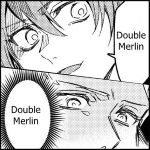|
Captain Walker posted:Oh good, glad we moved on from piss discussion. Thread title should really be Trad Games Chat - Arivia posted: So others have suggested that you play a different system but I'm going to just make a firm suggestion that you should at least do a one shot of Apocalypse World. A lot of it is free! http://www.apocalypse-world.com/ Within indie RPGs it's arguably the biggest touchstone with the most influence (admittedly, small pond), and it's very easy to get people into it - the core premise is "Mad Max" which basically everybody gets and loves, and the game was originally designed to be run at cons so you can get somebody up to "functional" with the rules in about 5 minutes. It also comes from a radically different design sensibility than DnD, so in terms of bang for you buck on 'amount of effort' to 'new things you'll learn about RPGs,' it's pretty much the maximum. It isn't that similar to what you asked for but I think that it's very valuable to explore the space, push yourself, see what's out there, and this is not only very different from DnD it will also make it easier to discuss with other RPG nerds since so much of AW's approach has become part of the lingua franca of RPGs.
|
|
|
|

|
| # ? May 25, 2024 00:11 |
|
Tulip posted:So others have suggested that you play a different system but I'm going to just make a firm suggestion that you should at least do a one shot of Apocalypse World. A lot of it is free! I second this recommendation but I want to add that if you do decide to run Apocalypse World, read the Master of Ceremonies section. For real. If you're thinking to yourself, 'Nah, I'm good, I've run D&D a bunch' then you should read it twice.
|
|
|
|
BlackIronHeart posted:I second this recommendation but I want to add that if you do decide to run Apocalypse World, read the Master of Ceremonies section. For real. If you're thinking to yourself, 'Nah, I'm good, I've run D&D a bunch' then you should read it twice. All GMs should read that. Especially before they read any DMG.
|
|
|
|
BlackIronHeart posted:I second this recommendation but I want to add that if you do decide to run Apocalypse World, read the Master of Ceremonies section. For real. If you're thinking to yourself, 'Nah, I'm good, I've run D&D a bunch' then you should read it twice. If you don't decide to run Apocalypse World, read the MC section anyway. No matter what game you're gonna run, it is great advice.
|
|
|
|
Maxwell Lord posted:Is there a Romero analogue in this too?   Unfortunately not. The closest is the cemetery which doesn't explicitly mention or reference any of Romero's films and the idea of a fantasy world having a zombie problem is hardly enough proof for me to comfortably say "yeah that's the part referencing Romero." quote:Cemetery e: 1 thing of note that I really like is that because Pittsburgh has so many bridges (real life count is 446), they've included a little tidbit about how every single bridge has a troll. The trolls are like hermit crabs, with bigger bridges housing bigger trolls, and the trolls end up forming gangs of goblins to collect tolls or valuables from anyone looking to use the bridges. Makes me imagine something like The Warriors but all trolls and goblins. FirstAidKite fucked around with this message at 04:25 on Feb 9, 2022 |
|
|
|
Captain Walker posted:Oh good, glad we moved on from piss discussion. Thread title should really be Trad Games Chat - Arivia posted: Ryuutama is a lighter D&D in many ways. Itís more focused on overland travel but it does have a very simple and straightforward combat system, too. You could look to it at least for designing noncombat encounters and settings for players that might help spice things up? Or Iím sure people could list off a million other OSR or D&Dalike games with faster, smoother combat? If youíre really resolved to find ways to run interesting combat encounters for 5e, you might want to try asking the 5e thread for some suggestions on modules to look at for good encounters or see if anyone there is interested in sharing combat encounters they were proud of designing. It might give you a good metric but also you can lift and reflavor things for your own game.
|
|
|
|
Sionak posted:Hard agree. I so wanted to enjoy and run Mouse Guard and the art from the comic is gorgeous. But the Mouse Guard RPG does not want to share its contents and heaven help you if you need to look something up at the table. This has really not been my experience at all. Mouse Guard was my easiest on-point into that whole system, mostly because mice are just rolling d6s = skill, +1 per source of help whether that's a wise, a tool, or another guard, and trying to get 4s. They know how many successes they need because you the GM are setting it up and either rolling the rating for something that opposes them (from the denizens chapter) or giving them a fixed number of successes to hit based on the static skill factors (from the skills or, rarely, attributes chapter). The only weird thing the book does is put character creation at the very end, after it's explained how to use everything you're actually putting on that sheet. It starts with some sample character sheets for a patrol of mice from the comic and uses those as its examples throughout, and honestly I kinda like that way of going about things? It's not asking you to make decisions about something the book won't cover for a hundred pages.
|
|
|
|
If you want a fantasy adventuring RPG with actual mechanics for overland travel and without filler combat there's also always The One Ring. The first edition is one of the best games ever made, and the second edition just came out (I'm still not done reading through it to figure out if the changes are all good). It just flat out does not support players being murderhobos.
Lemon-Lime fucked around with this message at 14:52 on Feb 9, 2022 |
|
|
|
Glazius posted:This has really not been my experience at all. Mouse Guard was my easiest on-point into that whole system, mostly because mice are just rolling d6s = skill, +1 per source of help whether that's a wise, a tool, or another guard, and trying to get 4s. They know how many successes they need because you the GM are setting it up and either rolling the rating for something that opposes them (from the denizens chapter) or giving them a fixed number of successes to hit based on the static skill factors (from the skills or, rarely, attributes chapter). I'm sure it was way easier than other Luke Crane games, but I still struggled with using it as an entry point. I do think encouraging the pregens is a pretty good idea, as is explaining mechanics before getting to character creation. The "flip back and forth between four sections" approach to character generation has always been pretty difficult, especially for new players. I think grassy gnoll's point is good in regards to RPG books in general. Many of them haven't decided if they're trying to be an instructional text for learning the game or a reference while running the game. As a result, they don't do a great job with either.
|
|
|
|
Fragged Kingdom has two combat systems, one for detailed tactical resolution and one for quicker resolution of less important combat. It's.. not the easiest book to read, though.
|
|
|
|
It's possible to run D&D in an Apocalypse World-ly fashion, where the players have story autonomy and there's more options in encounters than stabbing monsters for XP. You have to house-rule huge chunks of it, though. My current DM is pretty good about awarding XP for avoiding combat at approximately the same rate as completing it; talking our way out of an extremely precarious encounter with a dragon, for example, netted us some big points. Solving problems and getting past traps also gets us XP bonuses about equal to fighting monsters that would hurt us the same amount if we had failed. We level up more quickly this way, but that's a feature, not a bug. It also keeps us role-playing. Combine that approach with something like Fellowship's Long Journey mechanic, where the players create their own obstacles to overcome, and you can make overworld travel fun again (if the DM doesn't mind players creating new details within their carefully crafted game universe).
|
|
|
|
Mirage posted:It's possible to run D&D in an Apocalypse World-ly fashion, where the players have story autonomy and there's more options in encounters than stabbing monsters for XP. You have to house-rule huge chunks of it, though. There's Dungeon World that's literally this. Too bad about one of the creators.
|
|
|
|
Glazius posted:This has really not been my experience at all. Mouse Guard was my easiest on-point into that whole system, mostly because mice are just rolling d6s = skill, +1 per source of help whether that's a wise, a tool, or another guard, and trying to get 4s. They know how many successes they need because you the GM are setting it up and either rolling the rating for something that opposes them (from the denizens chapter) or giving them a fixed number of successes to hit based on the static skill factors (from the skills or, rarely, attributes chapter). I admit I am personally more allergic to Craneisms than most people, which is a big part of my dislike. Still, you're correct that the book doesn't ask you to make decisions on information it hasn't covered yet, but it goes the opposite direction. It asks you to repeatedly reference information scattered throughout the rest of the book during both chargen and live play, instead of consolidating everything into one concise chapter. It's a wretched idea for a reference book, and it's not particularly adept at actually teaching you play, either. Compare to Fragged Empire, which is pretty trash at teaching you how to play both textually and via layout, but is a pretty solid reference book once you know what it's doing.
|
|
|
|
Combining tutorial and reference is very challenging. Not impossible, but I'm sympathetic to the difficulty. I continue to think that game authors might be best-served by separating these tasks; a "how to play" book/pdf in one hand, and a (hyperlinked, online) rules reference in the other. The how to play book can have all the premium art, bits of fiction, cool ideas, etc. too. Also Actual Plays produced by the game writer can demonstrate "how these rules work in practice" better than third parties who almost always wind up misinterpreting something, making house rules, etc. in the course of doing their own videos. The best thing about moving your rules reference to a free online hyperlinked tool (a wiki, for example) is that you can apply errata or even straight up upgrade the rules at low cost to both yourself and your players. A big disadvantage is that some players want to game entirely offline, and be put off by having to go online to access a reference. It'd also make it easier for people to play for free without buying your book. You can try locking your rules reference behind an account that costs money, but people will just clone it... then again, people just copy & share PDFs of your game books anyway, if they don't feel like paying you, so that cat's long since out of the bag anyway. Anyway if I ever make a RPG, that's how I intend to approach it. The documents for my game will be targeted to specific purpose, no single catch-all tome of everything.
|
|
|
|
I've been eyeballing a used copy of Mouse Guard at my FLGS; shame to hear its full of Craneisms as well. I like Torchbearer, but want a broader scope and less grind.
|
|
|
|
Leperflesh posted:Combining tutorial and reference is very challenging. Not impossible, but I'm sympathetic to the difficulty. I've got the Black Box D&D Basic Set and it's basically like this. "Dragon Cards" as a tutorial to teach the game, and separately a rules reference organized to be used at the table.
|
|
|
|
CitizenKeen posted:I've been eyeballing a used copy of Mouse Guard at my FLGS; shame to hear its full of Craneisms as well. I like Torchbearer, but want a broader scope and less grind. Iím also a weirdo whoís bizarrely tolerant of wizard-speak, so grain of salt, but if you could follow Torchbearer then Mouse Guard should be a cake walk. I actually found Torchbearer to be the most difficult to parse cause itís wizard-talk wearing a grognard costume most of the time. Mouse Guard has problems as a book, but the hard parts are in how the information is laid out and needing to read the whole book ; the prose itself is actually pretty light and enjoyable as far as a set of instructions is gonna get. Plus the book itself as just an object is very pretty in a twee way.
|
|
|
|
There are 24 hours left on the crowdfunding for Ariadne and Bob! You can back it on Kickstarter, Indiegogo, or itch.io. Here are some reasons why you should back it: 1. The game owns. It's been hilarious every single time we've played it. 2. It's all the best parts of GMing and being a player at the same time, and you get to divide up which part of being a GM you want. Do you want to describe weird poo poo? Come up with clever resolutions? Play a bunch of funny characters? There's a role just for you! 3. It's the perfect game for when someone cancels or flakes on your regular campaign. No prep, complete story in one session, doesn't need lots of players. 4. The guest playsets and variants are going to be amazing. Vel is working on one where the evil genius is constantly thwarted by her good-hearted but naive partner. Ettin is bringing us some cool Cyberpunk poo poo. Austin Ramsay is making one where the duo is a mech pilot and their mech. Nick Butler is adding a new role focusing on the recurring villain who opposes our pair. And Jason Pitre is going to be writing up some fun plane-hopping stuff based on Sig. 5. You're supporting cool goon designers like Vel Mini and Ettin, and art by Ferrinus. 6. Since we're talking about Luke Crane again, I promise not to use wizard speak and instead simply communicate like a normal human. (I'm not sure if any of us here are truly normal, but I think I can fake it alright.)
|
|
|
|
Absurd Alhazred posted:There's Dungeon World that's literally this. Too bad about one of the creators. TBH I think if you want that it's probably better to just run AW and say it's fantasy.
|
|
|
|
so few players seem willing to read books and learn rules through study that i'm sympathetic to anyone who doesn't bother making their books function as tutorials not making your books function as reference documents is just a disservice to everyone, though
|
|
|
|
Tuxedo Catfish posted:so few players seem willing to read books and learn rules through study that i'm sympathetic to anyone who doesn't bother making their books function as tutorials What about making it accessible to the GM so they can actually learn how to run your game?
|
|
|
|
Tulip posted:TBH I think if you want that it's probably better to just run AW and say it's fantasy. AW is surprisingly easy to reskin, you just have to be the littlest bit flexible about what an ďapocalypseĒ is.
|
|
|
|
Tulip posted:TBH I think if you want that it's probably better to just run AW and say it's fantasy. Dungeon World has the "It uses a bunch of D&D-isms" either going for it or holding it back depending on your tastes. Also no intimacy moves, which can be uncomfortable for some, especially the way they're specifically sex stuff in AW. Yeah this is stuff that comes up every time AW s discussed, but I think worth mentioning if pitching the game to someone new.
|
|
|
|
Absurd Alhazred posted:What about making it accessible to the GM so they can actually learn how to run your game? i can usually synthesize it as long as there's both a clear statement of purpose and looking up the answers to specific questions is fast and easy. (lots of games also don't have this but that's a separate problem) this also isn't to say "no tutorial is better!" because that's obviously nonsense, but if something has to go, a tutorial is something you outgrow once you know what you're doing, whereas by the time you've outgrown a reference document, you basically don't need the book at all any more
|
|
|
|
There's also Homebrew World, which tries to fix some of DW's design mistakes while still keeping it D&D adjacent. And its designer isn't a creep! (AFAIK)
|
|
|
|
Leperflesh posted:Combining tutorial and reference is very challenging. Not impossible, but I'm sympathetic to the difficulty.
|
|
|
|
Splicer posted:On the board game front this is similar to how FFG did Eldritch Horror and Arkham Horror 3rd edition and it works great. You read the relatively short manual to get playing, and whenever you have a rules question you refer to the entirely reference structured rules book. I don't need to know all the monster movement edge cases to get playing so it doesn't include that in the gameplay book, but if I do have a weird question about monster movement priority I open the rules reference and go to monsters -> movement -> oh there it is in exhaustive, clinical detail, nice. They also did it for the Arkham Horror LCG and yeah, itís extremely effective. But I think itís way easier to do this with a board game than a TTRPG. In a board game rules omitted from the tutorial are bold keywords on game components. For a TTRPG with just a book, you often have to know the rule exists ahead of time (or if you suspect it exists, what words to look up in the index).
|
|
|
|
Leperflesh posted:I continue to think that game authors might be best-served by separating these tasks; a "how to play" book/pdf in one hand, and a (hyperlinked, online) rules reference in the other. The how to play book can have all the premium art, bits of fiction, cool ideas, etc. too. Also Actual Plays produced by the game writer can demonstrate "how these rules work in practice" better than third parties who almost always wind up misinterpreting something, making house rules, etc. in the course of doing their own videos. I mean, in theory yes, but they can also easily end up demonstrating "how the author thinks these rules work in practice" when the rules they actually wrote down in the book don't accurately express the rules they have in their head. Ideally, what you probably want is playtesters who were not involved in the authoring of the rules, and when they do something that doesn't match what the author thinks the rules are, you can ask why -- both "because the rules as written say we should do it this way" and "because the rules as written don't work so we changed them" point at places where things should be tweaked. And then once you have a session where the players and the designers actually agree on what the rules are you put that in the book.
|
|
|
|
ToxicFrog posted:I mean, in theory yes, but they can also easily end up demonstrating "how the author thinks these rules work in practice" when the rules they actually wrote down in the book don't accurately express the rules they have in their head. Yeah, I feel like a looooot of RPGs get playtested, if at all, with the author as the GM, facilitator, or just "player who knows the rules".
|
|
|
|
CitizenKeen posted:I've been eyeballing a used copy of Mouse Guard at my FLGS; shame to hear its full of Craneisms as well. I like Torchbearer, but want a broader scope and less grind. It is the least Craney-y Luke Crane game, for what it's worth. Plus it's nice to look at all the print copies of panels from the comics. I liked it well enough to run a couple of games on the forums, back in the day.
|
|
|
|
This thread is the only place I've ever seen people saying learning Mouse Guard was a struggle for them. I haven't read the second edition, so maybe things changed there, but 1E was well-known in its time for being written for accessibility: the style of the writing and the organization of the contents all assume that its readers are new to the hobby, so the style is deliberate, instructional, and doesn't waste a word. If you read it out-loud it sounds a lot like how you'd teach a young person to perform a complicated task. And it works! For quite a few years after it was released, Mouse Guard 1E had a reputation as the game you could hand to people new to the hobby, including children, and they'd get it. I've done this myself on multiple occasions, with children and adults, and never had anyone find it too challenging. It is far and away the most success I've ever had with any RPG corebook at getting people interested in playing the game, and in having those people come to the table literate in how to actually play. Make of that what you will.
|
|
|
|
ToxicFrog posted:I mean, in theory yes, but they can also easily end up demonstrating "how the author thinks these rules work in practice" when the rules they actually wrote down in the book don't accurately express the rules they have in their head. Yeah this is very much the case, I agree. If we were discussing "leper's ideal doc plan for a new RPG" playtesting would take place at multiple stages of development, and final documentation comes after final playtesting. But also, having an easily modified/updated online ruleset separate from your tutorial content allows you to treat your first release as an open beta, in that you can ingest a broader field of actual players' feedback and problems and upgrade your rules to suit; essentially you can move away from the traditional "edition" model of release, where you only make significant changes every few years and you force your customers to re-buy everything each time you do it. A living rulebook may not generate the revenue that an edition cycle can, but for indie publishers maybe keeping customers engaged with regular updates would drive more money than just hoping your first edition remains popular enough after five years to attract a customer base to a 2nd edition?
|
|
|
|
Kestral posted:This thread is the only place I've ever seen people saying learning Mouse Guard was a struggle for them. I haven't read the second edition, so maybe things changed there, but 1E was well-known in its time for being written for accessibility: the style of the writing and the organization of the contents all assume that its readers are new to the hobby, so the style is deliberate, instructional, and doesn't waste a word. If you read it out-loud it sounds a lot like how you'd teach a young person to perform a complicated task. Right?! Mouse Guard was the second or third RPG book I ever read and I was able to get it immediately and fit right in with a group for pbp.
|
|
|
|
Eggnogium posted:They also did it for the Arkham Horror LCG and yeah, itís extremely effective. But I think itís way easier to do this with a board game than a TTRPG. In a board game rules omitted from the tutorial are bold keywords on game components. For a TTRPG with just a book, you often have to know the rule exists ahead of time (or if you suspect it exists, what words to look up in the index).  It's got the types of monster and how monsters act in the same easy to read place to provide context to each other, it contains some non-rules text for flavour and to explain what each state means in-fiction, and has a few pictures for the eyes and so you know what to expect when you bust out the cards. It's a good, solid introduction to what a monster is and how it acts. Also I'm guessing you can already see two or three examples of ambiguous phrasing or glaring edge cases that would show up in play almost immediately. Now here's the rules reference for the monster phase: quote:202 Monster Phase Both these descriptions are important, but trying to jam them together would make them a worse "Hey come play this fun game!" and "Hey here's how the game actually works". There's no reason you couldn't do the same for, e.g., D&D combat; have a flowery description of how fun and exciting combat is alongside a picture of a cool elf shooting a dude, and a couple of lines describing the basic action economy so you know the difference between a full action and a bonus action ability. Meanwhile the technical document in the back of the book contains a point by point dissection including what the whole deal of casting a bonus action cantrip and a full action spell vs a full action cantrip and a bonus action spell.
|
|
|
|
Iíve seen a few people on the Ironsworn discord report using Ironsworn (with. I/minimal changes beyond setting) to run mouse guard games (solo and coop/guided) with success.
|
|
|
|
Personally, I don't want the setting. I want to run a big, sweeping post-apoc or supers-family game, the kind of sweeping epics I hear about from Burning Wheel. But I can't read Burning Wheel.
|
|
|
|
Jimbozig posted:6. Since we're talking about Luke Crane again, I promise not to use wizard speak and instead simply communicate like a normal human. (I'm not sure if any of us here are truly normal, but I think I can fake it alright.) 
|
|
|
|
Tuxedo Catfish posted:so few players seem willing to read books and learn rules through study that i'm sympathetic to anyone who doesn't bother making their books function as tutorials This dilemma is actually a big time one in the cardboard wargame part of trad games and most rulebooks do tend to go through the double-as-tutorial approach. There are notable exceptions, like Axis Empires: Totaler Krieg/Dai Senso, which is excellent for reference, but horrifyingly bad as a read-through tutorial. Most wargames include a playbook(often the part you can't grab off the internet) that has some tutorial playthroughs, historical content, and designer notes, as well as scenarios, sometimes.
|
|
|
|
Leperflesh posted:Yeah this is very much the case, I agree. If we were discussing "leper's ideal doc plan for a new RPG" playtesting would take place at multiple stages of development, and final documentation comes after final playtesting. But also, having an easily modified/updated online ruleset separate from your tutorial content allows you to treat your first release as an open beta, in that you can ingest a broader field of actual players' feedback and problems and upgrade your rules to suit; essentially you can move away from the traditional "edition" model of release, where you only make significant changes every few years and you force your customers to re-buy everything each time you do it. A living rulebook may not generate the revenue that an edition cycle can, but for indie publishers maybe keeping customers engaged with regular updates would drive more money than just hoping your first edition remains popular enough after five years to attract a customer base to a 2nd edition? Personally, I'd never drop a dime on something where all the game info isn't self contained in a pdf or epub or book. I don't want to have to rely on someone else continuing to care about their product for me to be able to use it. I have lost track of how many indie games I've found over the years that no longer exist because the website disappeared or the creator moved on or was forced out of the space. Having a separate tutorial or starter guide is good, but don't confine the actual game to a website.
|
|
|
|

|
| # ? May 25, 2024 00:11 |
|
CitizenKeen posted:Personally, I don't want the setting. I want to run a big, sweeping post-apoc or supers-family game, the kind of sweeping epics I hear about from Burning Wheel. But I can't read Burning Wheel. I feel like Legacy does this. I mean, it's specifically about sweeping post-apocalyptic stuff. (And just to make my position clear, having read and played Burning Wheel, I hate it.)
|
|
|

































